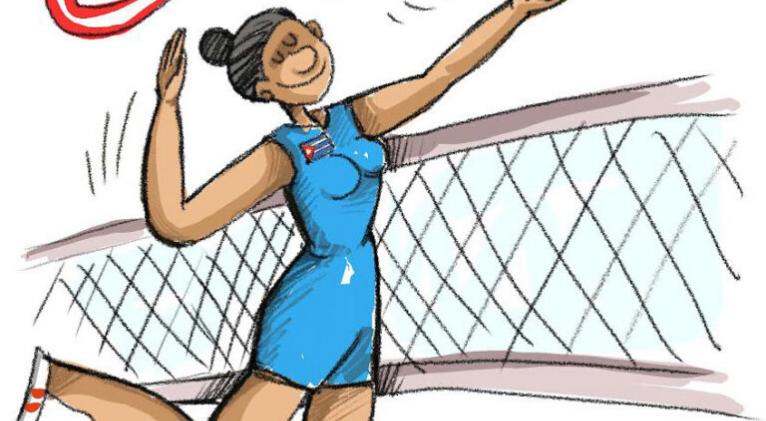Maura Alfonso Dreke: A Life Above the Net
especiales

Volleyball ranks among the most practiced sports worldwide for its dynamism and beauty—qualities that allow both men and women to develop their full potential while inspiring a special enthusiasm among players and spectators alike.
For Maura Alfonso Dreke, the sport played over the high net is passion and life. When her mother passed away, Maura was only twelve years old. This loss prompted her move from Camagüey to the city of Cárdenas in Matanzas, where her older sister lived. She recalls that, at that time, the Marcelo Salado Elementary School she attended was recruiting students for volleyball training in a nearby area. Though she knew nothing about the sport, the young adolescent became intrigued and soon began learning its fundamentals.
Within a year, her natural talent led her to be selected for the Luis Augusto Turcios Lima Sports School (EIDE). Not long after joining the institution, she was chosen to compete in the 7th and later the 8th National School Games, an opportunity that marked a turning point in her athletic development.
During the 1970s, due to her physical abilities and technical skill, Maura was admitted to the National Sports School (ESPA) and went on to compete in the 1971 and 1972 National Youth Games. Following the 1972 Munich Olympics, she was promoted to the national pre-selection team.
With this rising track record, she was soon called to join what would become a legendary team in volleyball history: the Spectacular Caribbean Morenas. The charismatic athlete, known for her calm voice and penetrating gaze, vividly recalls her first international experiences: “I was part of the national teams in Mexico in 1974 and the Soviet Union in 1978. During my debut, I hardly played, serving mainly as a support player among a roster of seasoned athletes.”
The 1978 World Championship in Leningrad was historic—Cuba claimed the world title, defeating the powerful Soviet team for the first time. “It was a tense match from start to finish. The opponents were strong, but we won honorably thanks to two decisive serves by Ana Ibis Díaz.”
After every victory come stories worth retelling: “When we faced the Soviets, we were very nervous. The final points happened so quickly we didn’t even realize we had won. Suddenly, a voice echoed through the stands: ‘You won! You won!’ We looked at the scoreboard and rushed onto the court to celebrate.”
Among her generation, the player she most admired was Mercedes Pérez, “an athlete who embodied hard work, respect, and determination.” Tall and powerful, Maura—now a mother of two—does not hesitate to name Ana Ibis Díaz as her closest friend on the team. “I owe my athletic career to my family and my first coaches; without them, earning the Ana Betancourt and Mártires de Barbados medals, along with the Gold Button awarded to me after the 1980 Moscow Olympics, would have been impossible.”
Maura reached the top of the podium in Pan American and Central American Games, later sharing her expertise in the Bolivarian Republic of Venezuela. Reflecting on the current state of women’s volleyball in Cuba, she asserts: “At present, the national team is not in good shape. The time will come when new generations reclaim the triumphs of the past, but that will require hard work—from the grassroots to the elite level.”
Today, at 75 years old, Maura enjoys life with her family in the historic City of the Primicias. Though retired, she remains dedicated to training young talents, ensuring a promising future for Cuban women’s volleyball.














Add new comment